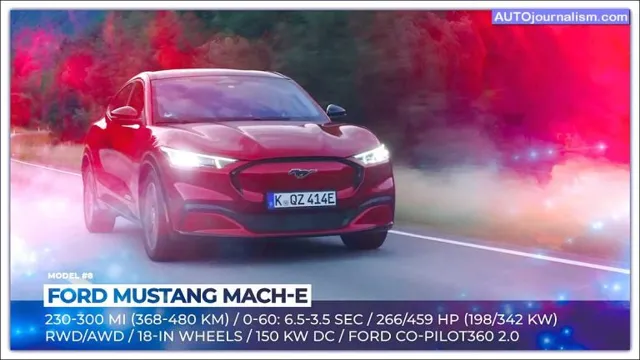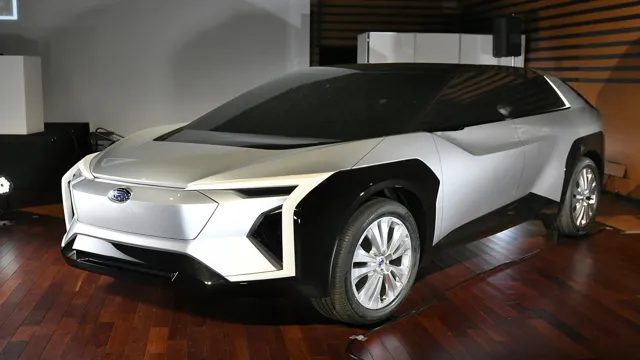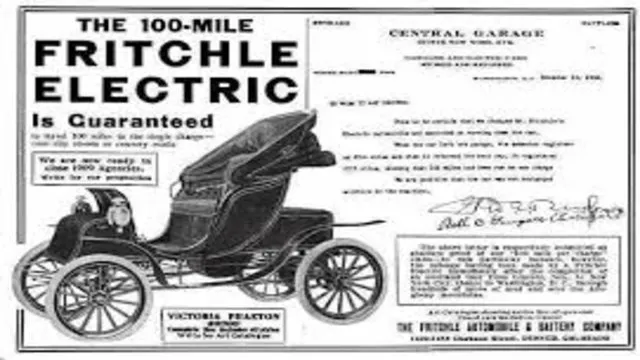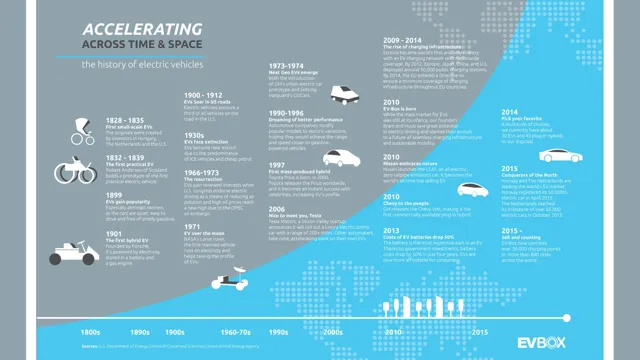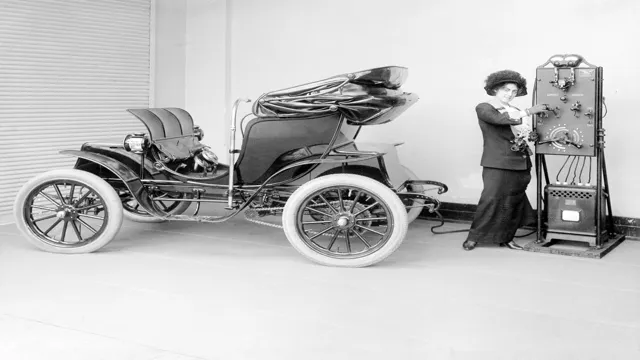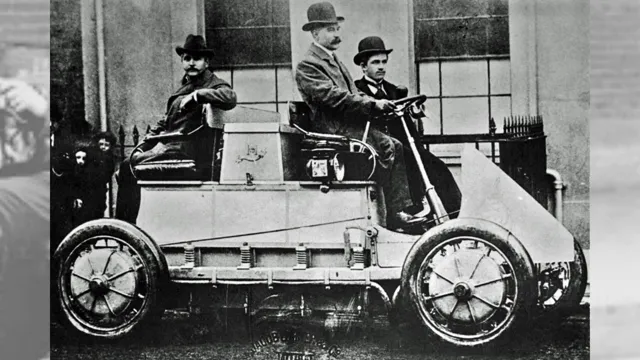Revolutionizing the Wheels: Tracing the Fascinating History of American Electric Cars
Electric cars, once viewed as an obscure niche market reserved for the environmentally conscious few, have evolved into a mainstream industry phenomenon in America. With advancements in technology and the heightened focus on environmental concerns, electric cars have become increasingly accessible and widely accepted. The electric vehicle market has experienced tremendous growth and transformation in recent years, with experts predicting that electric cars will make up a significant percentage of new car sales in the near future.
But how did we get here? What were the challenges and breakthroughs that led to the evolution of electric cars in America? Let’s take a closer look at the history of electric cars and how they got to where they are today.
Early Beginnings
American electric cars history can be traced back to the 1800s when inventors began tinkering with electric-powered vehicles. One such inventor was Thomas Davenport, who created a small electric motor and used it to power a model car in the early 1830s. However, it was not until the 1890s that electric cars gained mass appeal and started to gain traction in the automobile industry.
Innovators like William Morrison, who invented the electric car in 1891, contributed to the immense popularity of electric cars in the early 1900s. In 1900, electric cars made up almost a third of all vehicles on American roads. However, as gasoline-powered cars became cheaper and more widely available, electric car production declined, and eventually, they became a niche market.
Despite this, the early beginnings of American electric cars show how the industry has evolved over time and has continued to pave the way for innovations in energy-efficient vehicles.
The First Electric Car in America
The first electric car in America had quite an interesting early beginning. It all started in 1834 when the young inventor Thomas Davenport developed a small model electric car that ran on a copper disk battery. However, it wasn’t until the 1890s that the first practical electric cars were developed.
William Morrison, a chemist from Des Moines, Iowa, developed a six-passenger wagon that could reach a top speed of 14 miles per hour and had a range of about 20 miles per charge. This was a significant innovation at the time, as electric cars had the advantage of being quiet, easy to handle and maintain, and pollution-free. Despite their benefits, however, electric cars failed to catch on with most consumers due to their high cost and limited range.
It wasn’t until the development of cheaper oil-based gasoline and the mass production of gasoline-powered automobiles that electric cars would fall out of favor. Nevertheless, the first electric car in America paved the way for future innovations in sustainable transportation.
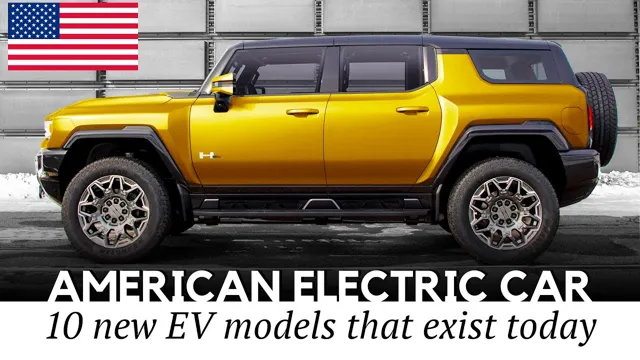
Limited Popularity in the 20th Century
Contrary to popular belief, limited popularity for computers existed in the 20th century. The early beginnings of computers were not as widely accepted as they are today. In fact, computer technology in the early 20th century was considered experimental and not practical for most people.
It wasn’t until the development of the microprocessor in the 1970s that computers began to gain popularity and become more practical for everyday use. This technological advancement allowed for the creation of smaller and more powerful computers, paving the way for what we now know as personal computers. Despite the initial lack of popularity, the groundwork laid by early computer pioneers has set the stage for the digital revolution we are currently experiencing.
Revival of Electric Cars in the 21st Century
The history of American electric cars dates back to the early 1800s, with the invention of the first electric vehicles. However, it wasn’t until the 21st century that we saw a major revival of these cars. With the increasing concern for the environment and the need for sustainable transportation, electric cars have become a popular choice for many Americans.
The Tesla Model S, for example, has become a symbol of luxury and innovation in the electric car industry. It’s not just Tesla, though; companies such as General Motors and Ford have also started producing their own electric cars. This shift towards electric cars has also led to the development of better battery technology, enabling these cars to drive longer distances on a single charge.
With the emphasis on renewable energy and the need for reducing carbon emissions, electric cars will undoubtedly continue to play a significant role in the future of transportation. It’s an exciting time for this industry, and we can’t wait to see what’s next.
Introduction of the Tesla Roadster
The introduction of the Tesla Roadster marked the beginning of a new era in the automotive industry – the revival of electric cars in the 21st century. In the past, electric cars have been known as slow, unexciting, and impractical. However, Tesla broke the stereotype of electric cars by introducing a sleek and sporty vehicle that could go from 0 to 60 mph in just
9 seconds. The Tesla Roadster not only offers speed but also has a range of over 620 miles on a single charge, which is a significant improvement from the previous electric cars that had limited ranges. The Roadster’s introduction paved the way for other car manufacturers to follow suit and invest more resources into developing electric cars.
As more countries aim to reduce their carbon emissions, electric cars are becoming an increasingly popular alternative to traditional gas-powered vehicles. With the Tesla Roadster leading the way, it’s clear that electric cars are here to stay and that the automotive industry is changing with the times.
Government Support for Electric Cars
Electric Cars With the global cry for environmentally friendly transportation options, electric cars have found a new home in the 21st century. Governments worldwide have taken notice and are doing their part to support electric cars’ revival. Some countries offer tax incentives, rebates, and subsidies to both manufacturers and consumers.
Governments also invest in the development of electric vehicle infrastructures like charging stations. These stations not only make electric cars a feasible option for long-distance travel but also create job opportunities. In some cities, electric car owners get additional benefits such as parking fee concessions and priority lane usage.
These incentives and developments have caused a steady increase in electric car production and ownership, further contributing to a sustainable environment. The revival of electric cars may not have happened without government support, showing the impact of government policies on social and economic issues.
Rapid Growth in Electric Car Sales
The 21st century has seen a remarkable resurgence of electric vehicles. Electric car sales have witnessed rapid growth in recent years, with more and more people embracing eco-friendly transportation. This revival can be attributed to the increasing awareness of climate change and the need to reduce carbon emissions.
Governments have also provided incentives to encourage the adoption of electric vehicles, including tax credits and subsidies. As a result, many manufacturers have now started producing electric cars and have invested heavily in the development of technology that supports electric-powered vehicles. With major automakers offering a range of electric car models that are affordable, efficient, and have impressive mileage, the future of transportation seems to be green.
The adoption of electric cars is essential for the reduction of carbon emissions and achieving sustainability goals, making them an indispensable part of the future of mobility.
Current State of the Electric Car Industry
The history of American electric cars dates back to the early 19th century when inventors in the US and Europe started experimenting with electric-powered vehicles. However, it wasn’t until the 2000s that the electric car industry began to gain traction, with the introduction of the Tesla Roadster in 200 Nowadays, major auto manufacturers like GM, Ford, and Chrysler have joined the fray with their own electric car offerings, as well as startups like Rivian and Lucid Motors.
Electric cars are gaining popularity due to their efficient, eco-friendly operation, and decreasing prices as battery technology improves. With a growing number of charging stations being installed and support from governments, the future looks bright for American electric cars.
Tesla’s Dominance
The electric car industry is rapidly expanding, and Tesla remains the undisputed leader. While other manufacturers are making strides in producing electric cars, Tesla’s dominance is undeniable. With its advanced technology, outstanding performance, and sleek design, Tesla has set a new standard for electric vehicles.
Despite facing increasing competition, Tesla has managed to maintain its competitive edge, offering a range of models to suit different needs and budgets. The recent launch of the Model Y has further expanded its product range, and with the forthcoming Cybertruck, Tesla is set to revolutionize the pickup truck market. With its commitment to sustainability and innovation, Tesla continues to attract a loyal customer base and drive the electric car industry forward.
Competition from Traditional Car Manufacturers
The electric car industry is rapidly growing, and traditional car manufacturers are starting to take notice. As more consumers become environmentally conscious, many car companies are adding electric vehicles to their lineup. This increased competition is pushing electric car manufacturers to improve their technology and innovate new features.
While this competition may seem daunting, it is ultimately good for the industry as a whole. As more companies get involved, this will lead to lower prices, increased availability, and improved technology. It’s like a race, where each car manufacturer is trying to be the first to cross the finish line.
This competition has even led to some interesting collaborations between car companies. For example, Ford and Volkswagen formed a partnership to increase their economies of scale and improve their electric vehicle technology. Overall, this competition will only continue to benefit consumers in the years to come.
Future of Electric Cars in America
American electric cars have come a long way since their inception in the late 1800s. From the early electric vehicles that dotted American cities, to the gas-guzzling muscle cars of the 1970s, electric vehicles have seen their fair share of ups and downs in the American market. However, in recent years, electric vehicles have surged in popularity, with automakers like Tesla leading the charge.
With advancements in technology, battery range and charging infrastructure, it’s clear that the future of electric cars in America is bright. Not only are electric cars environmentally friendly, they are also cheaper to maintain and operate than traditional gas cars. As more Americans begin to understand the benefits of electric cars, it’s likely that the demand for these zero-emissions vehicles will continue to grow.
As a result, automakers will continue to invest in electric vehicle technology, making it easier and more accessible for everyday Americans to make the switch. The American electric car market has come a long way, and with the current momentum, it’s only set to expand.
Conclusion
As the saying goes, everything old is new again, and that certainly holds true for American electric cars. Although they may seem like a recent technological development, the history of electric cars in the United States dates back over a century. From early electric vehicles used for personal transportation to the revolution of Tesla’s futuristic electric models, this history is a fascinating tale of innovation, progress, and perhaps most of all, the adaptability of American engineering.
As we continue to push towards a more sustainable future, it’s worth remembering the impressive milestones achieved by American electric cars throughout history and the bright future that lies ahead for electrified transportation.”
FAQs
What was the first American electric car?
The first American electric car was the Columbia Electric in 1897.
Who invented the first American electric car?
The first American electric car was invented by William Morrison in 1891.
When did the American electric car industry decline?
The American electric car industry declined in the 1920s due to advancements in gasoline-powered cars and the availability of electric grids.
What caused the resurgence of the American electric car industry?
The American electric car industry began to revive in the late 20th century due to environmental concerns and government incentives for alternative fuel vehicles.
What are some popular American electric car models?
Some popular American electric car models include the Tesla Model S, Chevrolet Bolt, and Nissan Leaf.
